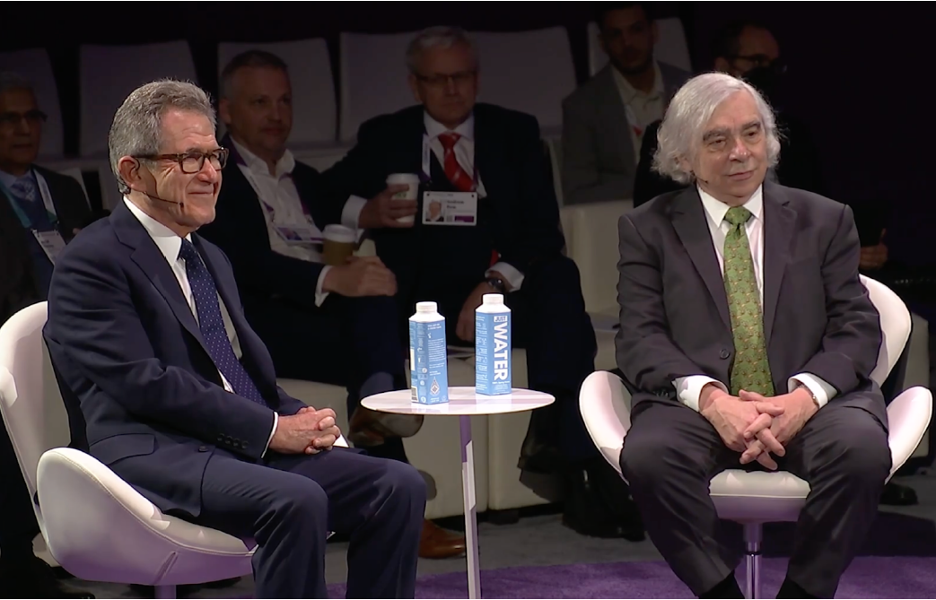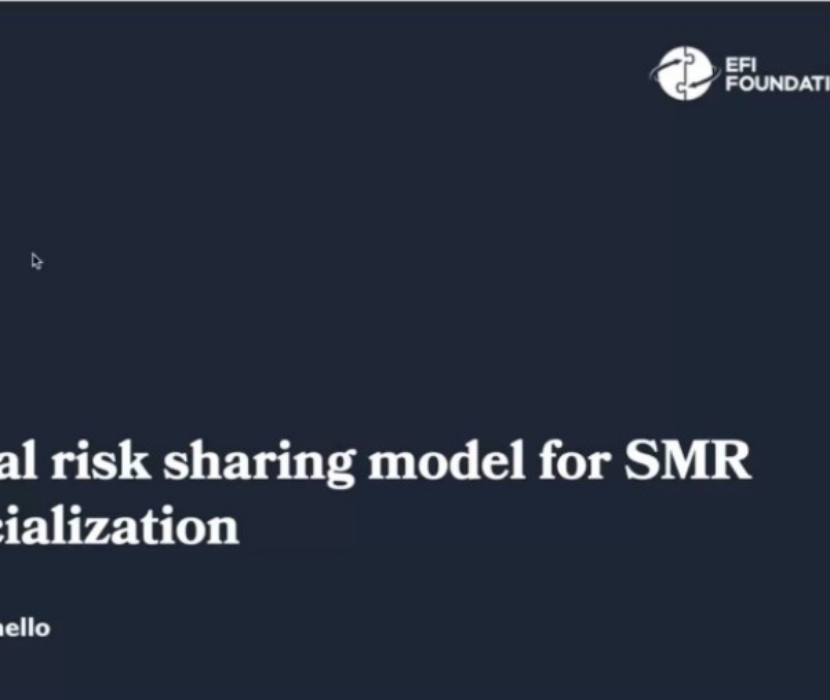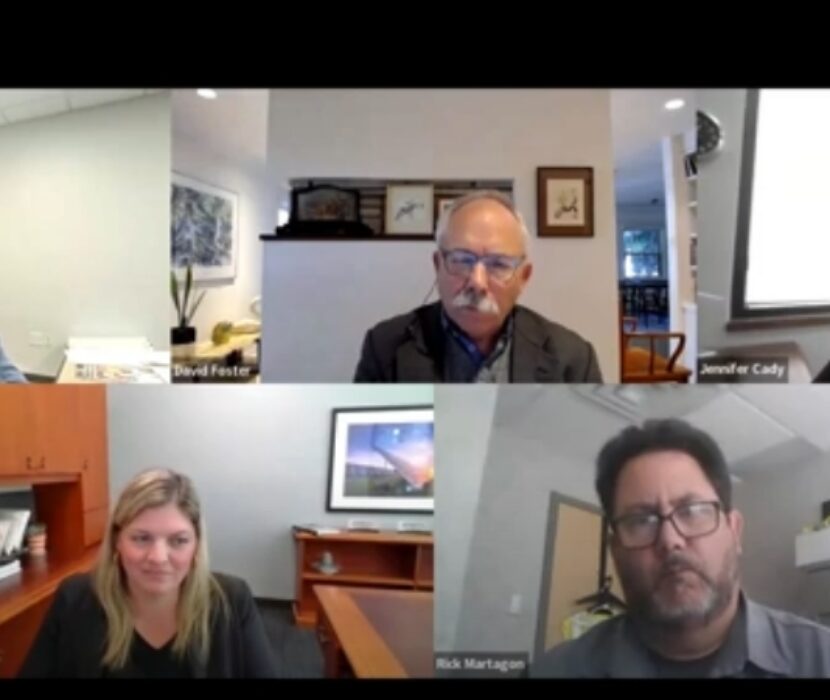
“We can’t discuss these issues of energy transition, of energy security, of geopolitical realities as silos,” said Energy Futures Initiative (EFI) CEO Ernest Moniz in a discussion with Lord Browne, Chairman of EFI’s Global Advisory Board. Moniz has frequently emphasized this point, most recently in his July 2022 op-ed in The Boston Globe, in which he said, “Climate change and energy security must be one conversation to most effectively address both.”
With these recent remarks, it is worth taking a further look at what Moniz and Browne said earlier this year at CERAWeek 2022 about addressing energy security and climate change together.
In the CERAWeek session, “Voices of Innovation: John Browne & Ernie Moniz,” Moniz explained how an integration of climate and energy security factored into his past work as U.S. Energy Secretary. In discussions between the Obama administration, G-7 countries, and the EU, he said, “There was, among other things, an explicit recognition that addressing low carbon was part and parcel of addressing energy security issues. So, that was this kind of integration of perspectives, which we need more of today.”
Browne—who is also Former Chief Executive of BP and Chairman of BeyondNetZero—underscored the importance of addressing decarbonization and energy security as system-level issues. He said the long-term objective of reducing greenhouse gas emissions must be considered alongside costs, timing, and tradeoffs to maximize reliability and minimize energy insecurity and its destabilizing effects. Browne stressed that a decarbonization strategy must integrate the energy transition, energy security, and geopolitics in theory and practice.
Moniz highlighted that while clean energy discussions are extensive, movement toward a clean energy future is slow.
“It’s a lot easier to talk about the destination than the road to get there, because that is bumpy,” Moniz said.
For example, Moniz said international dialogue is often counterproductive because it fails to build consensus on which energy sources to use, and who should use them, when creating clean energy pathways. Moniz recalled blanket statements at COP26 against natural gas that elicited backlash from less-developed countries that rely on natural gas for economic and social development.
“Here we are, in Europe increasing gas use, in the United States basically increasing gas use—now 40 percent of the power sector—and lecturing about how these countries should develop,” Moniz said.
Moniz also recalled conversations about decarbonization and energy security at the beginning of the Russia-Ukraine conflict in 2014, while serving as U.S. Energy Secretary. “There are many quotes from 2014 that you can just repeat today, including with the word ‘Ukraine’ in it,” Moniz said.
Despite lasting issues of energy security and transition, Moniz expressed confidence that strides in decarbonization will occur given the sector’s rapid evolution. For example, the need for significant “firm power”—meaning reliable and lasting power sources—has become a central tenet, which “was not the case, in many quarters, five years ago,” Moniz said. Although the energy space must better integrate perspectives when planning for the clean energy future, it is evident that ideas are shifting; action must follow, he explained.
Moniz spoke further at CERAWeek’s annual gathering of global energy experts on energy technology, including nuclear fusion. The conversation between Moniz and Browne showcases how innovators—from diverse backgrounds—can share a mutual understanding of the most pressing issues confronting the energy sector. Under Moniz’s leadership, EFI has published many reports on the clean energy transition. Explore these topics further:
- Reflections on the Energy Transition, A Collection of Testimonies by Ernest J. Moniz
- Portfolio for Accelerating the Clean Energy Transition
— Jaycee Scanlon, Communications Fellow
(Share this post with others.)




